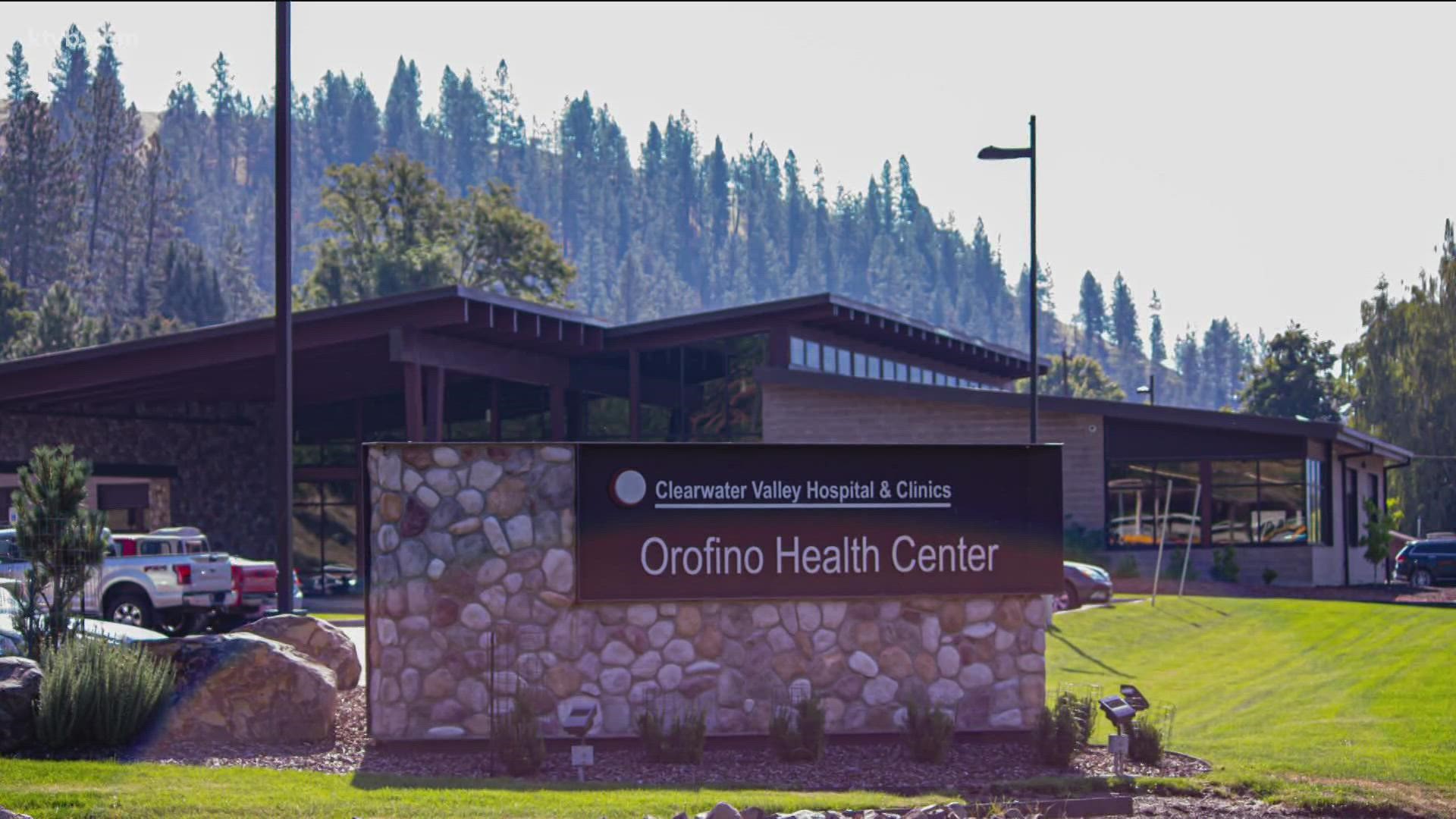BOISE, Idaho — On Saturday, Primary Health Medical Group told KTVB they were operating at a crisis level with a 50 percent positivity rate. The health group closed seven locations Saturday.
Rural clinics and hospitals like Clearwater Valley Health and St. Mary’s health are seeing long wait times, staffing shortages and are unable to transfer patients to larger hospitals right away.
“We just saw a very sudden rapid increase in cases which we have attributed to the arrival in omicron to the community and it’s been taxing all systems.” Said Kelly Mcgrath, chief medical officer for Clearwater Valley and St. Mary’s Health.
Mcgrath said the hospitals are seeing a 35.2 percent positivity rate. The rural hospitals typically send critical care patients to Kootenai Health, St. Joseph in Lewiston, Providence Sacred Heart, and Deaconess in Spokane. They have had to send patients to hospitals in Boise during the pandemic, but say now these hospitals are too full, causing wait times to be 4 to 20 hours.
“We had a patient with a large gastrointestinal hemorrhage that needed critical care and we were not able to transfer that patient, another patient with a critical neurologic condition that had to be put on a ventilator and was ultimately transferred to Portland because there wasn't capacity for that patient within our state,” Mcgrath said.
Mcgrath added that surrounding area hospitals are doing the best they can to accommodate incoming patients, but they are simply limited.
Salmon River Clinic in Stanley has three staff members and the clinic's physician’s assistant, Amy Klingler, fears for the direction that COVID-19 is trending in.
“My biggest concern is people postponing their routine or care for illness or injury that can get worse over time in light of the pandemic,” Klingler said. “In a small town like this, people drive by and they see a couple of cars parked outside and they just keep driving.”
Klingler says most of the patients coming in from primary care have concerns about COVID symptoms. She urges Idahoans who aren’t vaccinated to get the shot and adds that Omicron has the potential of still causing severe illness on someone who is not vaccinated. She fears if the trend continues, Crisis Standards of Care could return to the state.
"Returning to that level of crisis in our hospitals and the care that we are giving, it's really devastating to us and the community. It's demoralizing because it is what we try to avoid, it's why we do what we do," Klingler said.
Mcgrath said health experts predict Omicron cases to continue to soar over the next several weeks.
"Our concern is that this is just going to continue,” said Mcgrath. “And then the rural areas, although we are keeping our head above water right now, continued staff shortage and increasing demand beyond where we are right now, it's going to be a challenging time."
Facts not fear: More on coronavirus
See our latest updates in our YouTube playlist:

